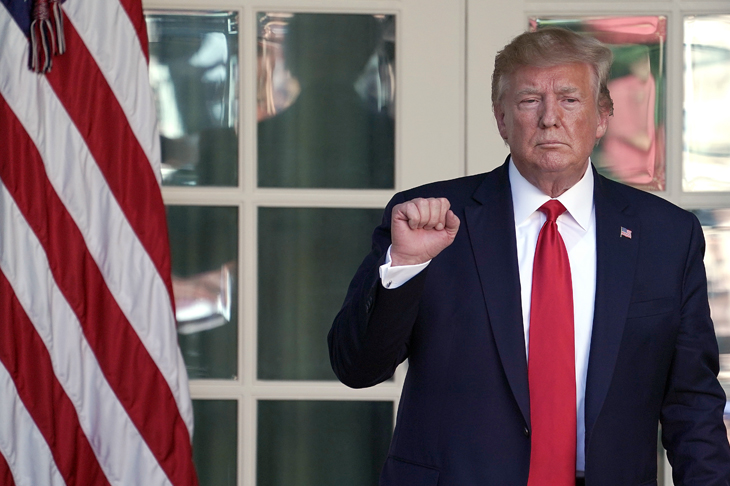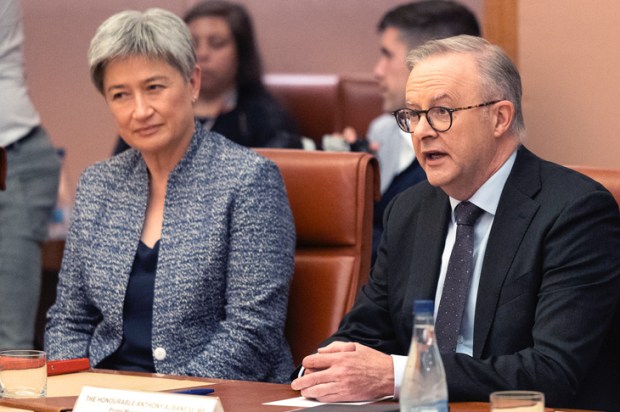On rare occasions, a report can constitute a major turning point, even for the world.
The latest Durham Report should be such a turning point. It should bring the United States, the leader of the free world, back from beginning to resemble a disreputable banana republic.
The first step in the process must be to end the weaponisation for political purposes of the Department of Justice, the FBI, the CIA and of even the tax collectors at the IRS.
But Special Counsel John Durham proposes no cure other than better behaviour. Despite three earlier indictments, Durham has chosen not to charge those who so obviously played a criminal role in fabricating the accusation that Donald Trump colluded with the Russians to have them manipulate the 2016 election.
Nor can we expect the current President to act. With mounting evidence of millions paid for access and influence by Beijing-controlled entities, together with his personal decline, Biden would not last for a minute as a Commonwealth prime minister. But in the US, it is almost impossible to remove what is an elected monarch.
With the corrupt US mainstream media uninterested, it seems that any accounting and any serious reform will have to wait until a new and clean administration.
Before examining the findings in the latest report, it is appropriate to recall the first and, until recently, the only Durham report, that by Lord Lambton, the Earl of Durham, in 1839.
Although mainly forgotten today, this constituted a major turning point for the British Empire, at that time the most important polity in the world, and accordingly, also for Australia.
Without it, it is unlikely that Canada and even Australia, as well as the Commonwealth, would exist.
The British-settled colonies, like those of Spain, would probably have had to take their independence by some display of force.
Most of the Canadian provinces, with the possible exception of Quebec, could have drifted into becoming US states.
Instead of Australia uniting to form one country, without the unifying influence of the Crown, a federal Commonwealth would have been more difficult to achieve. Rather, we could have become like South America, several republics with a less happy history.
Except perhaps in his dismissive references to the Quebecois, Durham was an extraordinarily wise man. I suspect that if he had been prime minister at the time of the War of American Independence, he would have agreed with Edmund Burke and there would have been no war. The Commonwealth would date from then.
Durham was responding to serious rebellions in 1837 and 1838 in the provinces of Upper and Lower Canada. Unlike the problem which caused the American colonies to eventually break away, rebels in the Canadian provinces were upset not with Britain but with the control exercised by the local Tory elite in the only partly representative Canadian legislative councils.
Durham saw the only possible solution in a society under the rule of law and with liberal and increasingly democratic traditions. This was, after all the British Empire, the most socially advanced in the world, an empire which had voluntarily abolished the slave trade, and then slavery.
Durham instinctively realised that the only solution, one which could retain the Empire, would be to grant the Canadians responsible government. This would be self-government by local governments formed on the Westminster model. (He also recommended uniting the two provinces).
It took time for this revolutionary proposal to be accepted, but once granted in Canada in 1847, it was soon extended to the other settled colonies, including Australia and New Zealand. Reforms were also made in India where the time to grant full responsible government was in the 1930s at the latest, the British missing that opportunity partly over worries concerning the Hindu-Muslim divide and Britain’s wish to remain a major military power in Asia.
Returning to the recent Durham Report, it has confirmed everything argued in this column about those events. The allegation that Donald Trump colluded with the Russians to manipulate the election was a lie and that fact was known to the Democrat leaders alleging it, the FBI undertaking the Crossfire Hurricane investigation as well as the perceptive in the media. It was undertaken to block his election and when that did not work, the object was to remove him from office, i.e., an attempted coup.
Leading Democrats not only lied about Trump, but not one Democrat came forward to denounce the fraud. The FBI went along with this, as did the Department of Justice. They failed to subject a tip-off from an Australian source to proper scrutiny.
When it came to considering the fabricated and uncorroborated story commissioned by the Democratic party and Hillary Clinton, Durham finds they failed ‘to uphold their important mission of strict fidelity to the law’. Even when seeking wiretap approvals from a special court, Durham says they displayed, at best, a cavalier attitude towards accuracy and completeness. Even when seeking renewals of surveillance approvals, they acknowledged they did not genuinely believe there was probable cause to believe the target was knowingly engaged in clandestine intelligence activities on behalf of a foreign power, or knowingly helping another person in such activities.
In other words, they knew there was no case whatsoever against Trump. Nor did the Democrat leaders, nor, I suspect the mainstream media, including the perceptive ones in Australia who played Little Sir Echo to the American media.
Durham finds that senior FBI personnel displayed a ‘serious lack of rigour’ even about material received from ‘politically affiliated persons’ that is, the Democrats. This included material provided or funded by them. There was, he says, no adequate examination of the motivation of those providing the material. This occurred even when at about the same time the FBI Director and other staff received ‘significant and potentially contrary intelligence’.
Durham states the obvious as to the correct, desirable behaviour. Clearly, the FBI and the Department of Justice hierarchy knew how they should behave.
But without insisting on personal accountability, we have stopped warning the delinquent of the serious consequences of impropriety. Strong sanctions must always be imposed for such crimes.
Got something to add? Join the discussion and comment below.
Get 10 issues for just $10
Subscribe to The Spectator Australia today for the next 10 magazine issues, plus full online access, for just $10.
You might disagree with half of it, but you’ll enjoy reading all of it. Try your first month for free, then just $2 a week for the remainder of your first year.












Comments
Don't miss out
Join the conversation with other Spectator Australia readers. Subscribe to leave a comment.
SUBSCRIBEAlready a subscriber? Log in